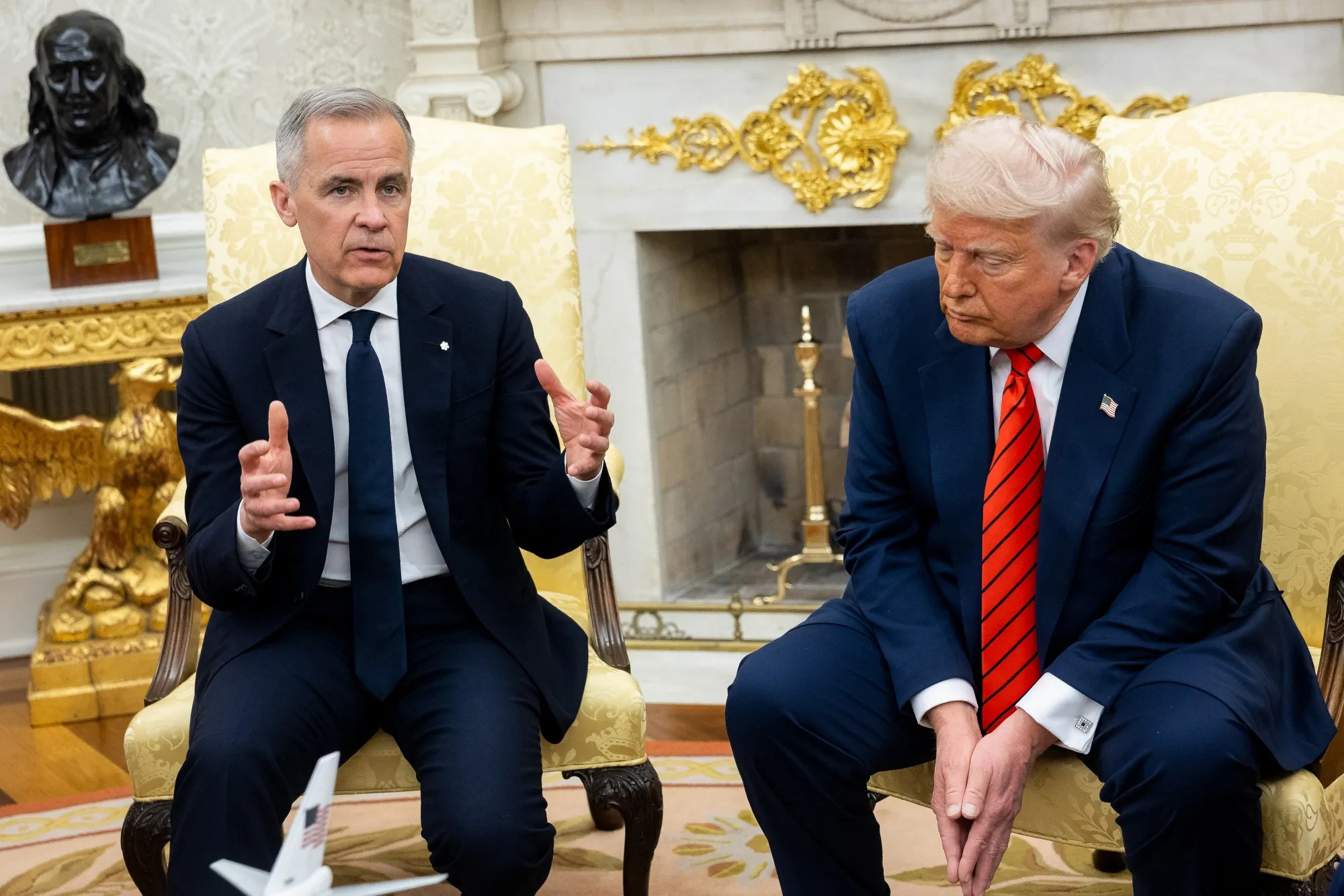Trump and Canadian PM Carney Clash on Tariffs, Flirt with Controversy Over U.S.-Canada Unity

In a high-stakes Oval Office meeting that quickly became a media spectacle, President Donald Trump and newly elected Canadian Prime Minister Mark Carney met Tuesday to address escalating trade tensions between the two close allies. While the session was intended to set a diplomatic tone, it instead highlighted sharp divisions over tariffs and included one of Trump’s most provocative musings yet: the idea of Canada becoming the 51st U.S. state.
The meeting began on a cordial note, with Trump praising Carney as a “strong leader” and Carney calling Trump a “transformational president.” But that diplomatic veneer quickly gave way to sharp exchanges over trade policy and national identity.
Tariffs: “No Movement”
Asked if anything Carney could say would persuade him to lift tariffs on Canadian imports, Trump was unequivocal: “No.” He reiterated his administration’s desire to produce American-made cars and steel, saying, “We don’t really want cars from Canada. We don’t want steel from Canada because we’re making our own steel.”
Canada remains the U.S.’s second-largest trading partner and its biggest export market, accounting for $349.4 billion in goods in 2024. But that economic interdependence has not shielded it from Trump’s aggressive tariff regime, which has imposed 25% duties on cars, steel, aluminum, and parts from Canada. In response, Canada has enacted its own counter-tariffs on over C$60 billion worth of U.S. goods.
Statehood Remarks Spark Outrage
Perhaps the most headline-grabbing moment came when Trump once again floated the idea of Canada joining the U.S. as a 51st state — a suggestion he has made before, though never so forcefully.
“I’m a real estate developer at heart,” Trump said. “When you get rid of that artificially drawn line... it would really be a wonderful marriage.”
Carney firmly rejected the idea, saying, “It’s not for sale, won’t be for sale ever.” Trump, unfazed, responded with his signature phrase: “Never say never.”
Trump Doubles Down
The U.S. president also appeared frustrated with media questions about trade deals, insisting his administration could “sign 25 deals right now” but was holding off to ensure favorable terms. He likened the U.S. economy to a “super luxury store,” stating: “We’re just going to put down a number and say this is what you’re going to pay to shop.”
Despite the hardline rhetoric, Trump insisted the talks with Canada were “very friendly” and pledged continued “friendship” with the northern neighbor. “Regardless of anything, we’re going to be friends with Canada,” he said, pointing to Canadian hockey legend Wayne Gretzky as an example of his admiration for the country.
Carney Finds His Footing
While Trump dominated the conversation, Carney managed to make Canada’s position clear. On the U.S.-Mexico-Canada Agreement (USMCA), Carney noted it remains “a basis for broader negotiation,” but acknowledged it will likely need adjustments.
As for Trump, he questioned whether the USMCA is even “necessary anymore,” though he conceded it’s “a good deal for everybody.”
Tuesday’s meeting revealed more friction than progress between the two leaders. While both sides reiterated their friendship, the lack of movement on tariffs, Trump's brash talk of statehood, and questions over existing trade agreements underscored the fragile state of U.S.-Canada relations — and hinted at more turbulent negotiations ahead.




